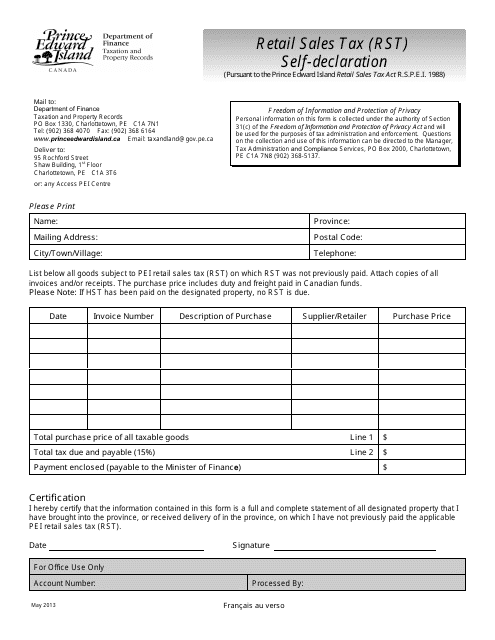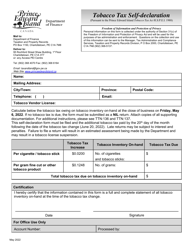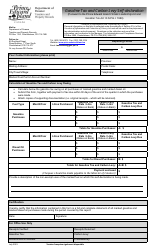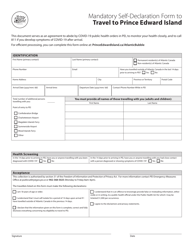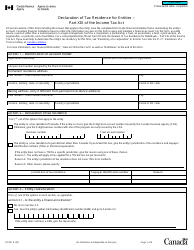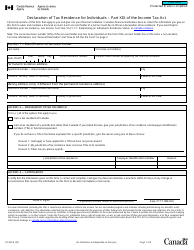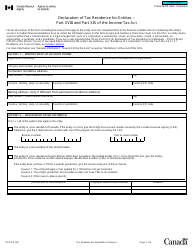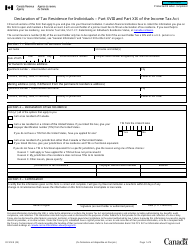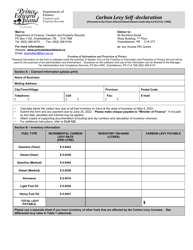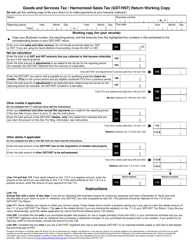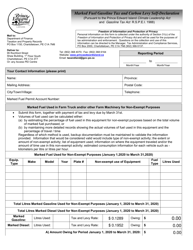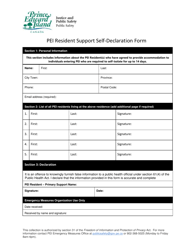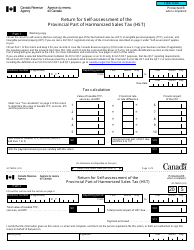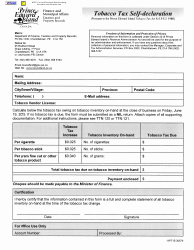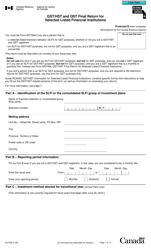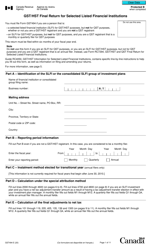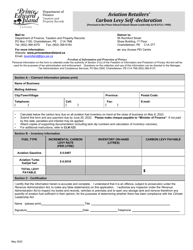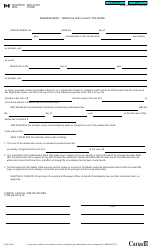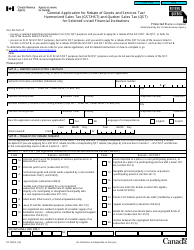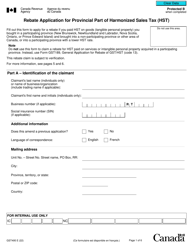Retail Sales Tax (Rst) Self-declaration - Prince Edward Island, Canada
The Retail Sales Tax (RST) self-declaration form in Prince Edward Island, Canada is used for individuals or businesses to report and pay the sales tax they owe on certain goods and services sold. It is a way for the government to collect taxes from retailers in the province.
The retail sales tax (RST) self-declaration in Prince Edward Island, Canada is filed by businesses that are registered to collect and remit the RST to the government.
FAQ
Q: What is Retail Sales Tax (RST)?
A: Retail Sales Tax (RST) is a tax levied on the sale or rental of most goods and services in Prince Edward Island, Canada.
Q: How is Retail Sales Tax (RST) collected?
A: Retail Sales Tax (RST) is typically collected by businesses at the time of sale or rental and remitted to the government.
Q: Who is responsible for self-declaration of Retail Sales Tax (RST)?
A: Businesses in Prince Edward Island, Canada are responsible for self-declaration and remittance of Retail Sales Tax (RST).
Q: What is the purpose of self-declaration?
A: Self-declaration helps ensure that businesses comply with the Retail Sales Tax (RST) regulations and accurately report and remit the tax.
Q: What are the requirements for self-declaration of Retail Sales Tax (RST) in Prince Edward Island?
A: Businesses must register for a Retail Sales Tax (RST) account, keep records of sales and purchases, and file regular returns to report and remit the tax.
Q: Is there a threshold for Retail Sales Tax (RST) self-declaration?
A: Yes, businesses with annual taxable sales exceeding a certain threshold must register for a Retail Sales Tax (RST) account and self-declare the tax.
Q: Are there any exemptions from Retail Sales Tax (RST)?
A: Yes, certain goods and services may be exempt from Retail Sales Tax (RST), such as prescription drugs and basic groceries.
Q: Can businesses claim refunds for Retail Sales Tax (RST) paid on purchases?
A: Yes, businesses can claim refunds for Retail Sales Tax (RST) paid on eligible purchases by submitting refund applications to the government.
